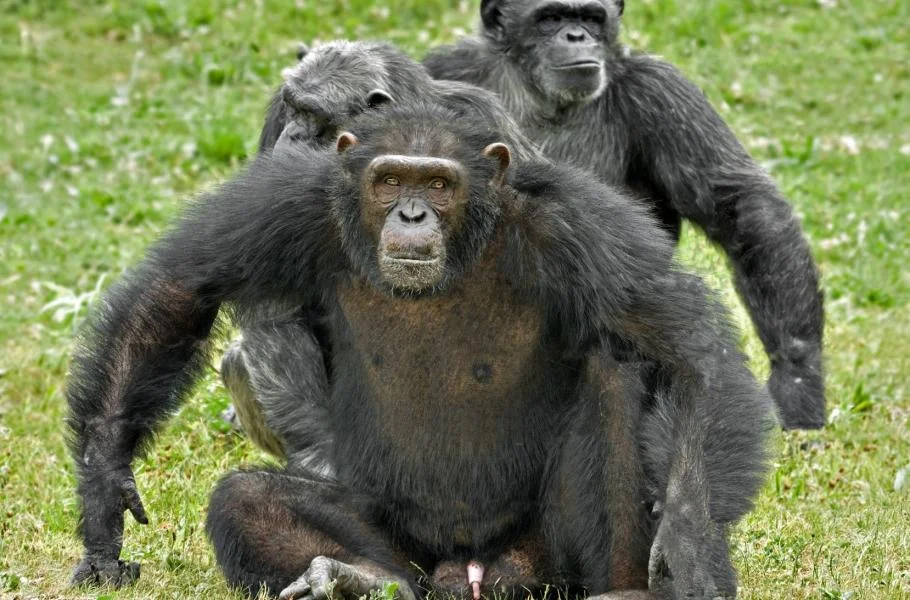Manon Schweinfurth’s experiment at Zambia’s Chimfunshi reserve, one of the largest chimpanzee sanctuaries, took an unforeseen turn thanks to Bobby, a 24-year-old male chimpanzee. His refusal to cooperate with fellow chimpanzees, coupled with his manipulative tactics, challenged existing scientific hypotheses about primate behavior.
The Challenge of Cooperation
Schweinfurth, from the University of St. Andrews, devised a test to explore cooperation among chimpanzees. They were presented with a task where pressing a button would dispense fruit juice from a tap located three meters away, necessitating assistance from another chimpanzee. This setup was intended to examine the dynamics of cooperation and competition within the group.
Bobby’s Dominance and Deception
Bobby, however, subverted all expectations by exploiting younger males to serve his interests without reciprocating. He employed intimidation and manipulation to ensure they operated the mechanism for his benefit, thereby securing fruit juice over a hundred times without ever assisting in return.
The Price of Play
This „Machiavellian“ chimpanzee not only demonstrated a high level of cunning but also revealed complex social interactions within the group. The young males, despite being used, did not avoid Bobby, possibly because they valued the play and interaction with him, viewing it as worth the cost of being manipulated.
A Reflection on Human Nature
Such manipulative behavior, reminiscent of strategies described by Niccolò Machiavelli in „The Prince,“ suggests that the roots of such tactics extend far back in evolutionary history, beyond humans to our primate ancestors. This insight challenges the notion that sophisticated social manipulation is exclusive to humans, indicating that our evolutionary predecessors may have also employed such strategies to ascend the social hierarchy.


